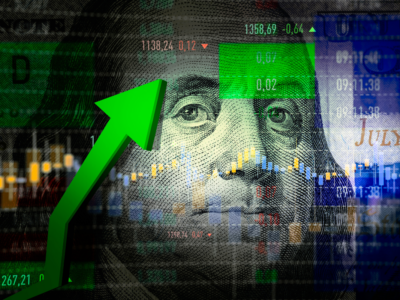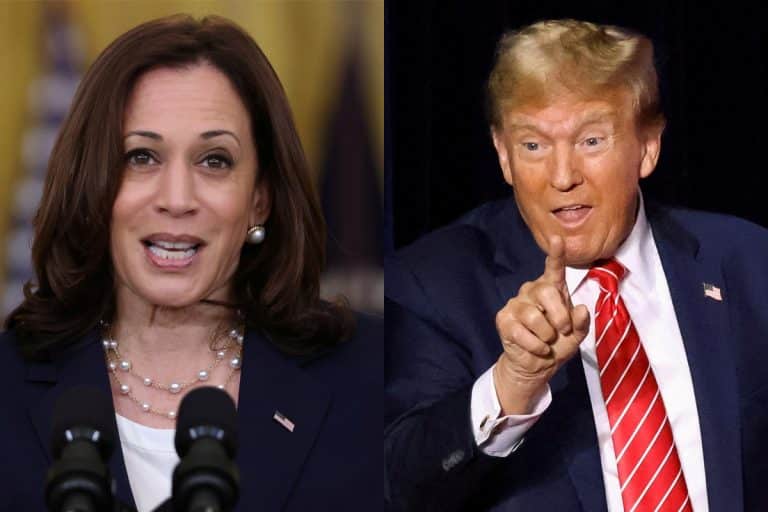The outcome of the 2024 US presidential election could dramatically reshape US-China relations, with far-reaching implications for financial markets.
As Donald Trump and Kamala Harris propose divergent approaches to China, experts warn that the result will have a massive impact on the world economy.
The US-China relationship is crucial due to the sheer economic power of both nations. As the world’s two largest economies, their interaction significantly influences global trade, financial markets and technological advancement.
The stakes
“Under Trump, investors need to be prepared for a fight with China unlike anything seen so far,” said geopolitical strategist Abishur Prakash, founder of the Geopolitical Business Inc.
He suggests that Trump might implement “massive restrictions on US outbound investment, blacklisting Western firms who continue doing business in China, or banning non-Western firms with links to China.”
In contrast, a Harris presidency might take a more measured approach. Prakash believes that for her, China is “one of the many” geopolitical challenges facing the US, alongside the likes of North Korea, Iran, and Russia. This could suggest a less singular focus compared to Trump’s approach.
“For Trump, however, China represents the single greatest geoeconomic challenge facing America, with everything else appearing much less significant,” he added.
Trade and tariffs
The severity of proposed policies could echo the trade war that erupted in 2018 during Trump’s presidency, experts said.
Joseph Dahrieh, Managing Principal at Tickmill, predicts that Trump’s policies could include “more aggressive trade measures, including across-the-board tariffs and higher tariffs on Chinese imports.” Such an approach could cause significant disruption to global supply chains, and in turn, impact emerging markets.

“Should Trump win, it could represent one of the most disruptive periods for the global economy, as trade flows are redesigned at rapid speed,” Prakash warned. he added that this could put governments in a challenging position, “where their businesses may have to double-down in the US [to access American consumers and enterprises], in a way that jeopardises their home markets.”
A Harris administration, on the other hand, would likely continue Biden’s trade policy, which emphasises “multilateralism and supply chain resiliency,” according to Dahrieh. While maintaining some targeted high-tariff barriers against China, her approach could provide a more stable environment for international trade, he believes.
Impact on global markets
The divergent approaches could lead to vastly different outcomes for global markets. Dahrieh suggested that a Trump win could potentially lead to more significant short-term gains in the stock market, driven by expectations of continued corporate tax cuts and deregulation policies. However, his aggressive stance on China could also increase market volatility.
“There is a growing belief in markets that Harris won’t do anything dramatic or impulsive if she wins in November,” Prakash said.
“Those with big exposure don’t have to prepare for curveballs or hedge bets in risky ways. Compare this to Trump, and many in the market don’t know what he will do on any given day, creating a range of ‘curveball scenarios’ that market stakeholders need to prepare for.”
A Harris victory might result in more moderate growth, anticipating possible increases in corporate tax rates and tighter regulations. Her administration’s focus on climate policies and renewable energy initiatives could benefit companies in the clean energy sector.
“ETFs focused on renewable energy stocks have shown positive movement in response to her potential presidency,” said Dahrieh.

Technology and innovation
The tech industry stands to be particularly affected by the future of US-China relations. Stricter policies could lead to further decoupling of tech ecosystems, while a more cooperative approach might foster innovation through shared resources and knowledge.
According to Prakash, regardless of who wins, both candidates will have to “raise the heat on China’s access to critical technologies that are enabling Beijing’s rise and power.” He added that the tech industry will “likely see far more limits and restrictions on business in China under Trump than under Harris.”
This technological decoupling, driven by security concerns and trade disputes, is already reshaping supply chains and impacting industries from consumer electronics to clean energy. The outcome has significant implications for global markets and emerging economies, affecting everything from AI development to rare earth mineral trade.
Taiwan: A critical flashpoint
Taiwan, a self-governing island that China claims as its territory, remains a major flashpoint in US-China relations. The US has long maintained a policy of strategic ambiguity towards Taiwan, providing it with military support without explicitly promising to defend it against a Chinese invasion. This delicate balance has been a cornerstone of stability in the Asia-Pacific region for years.
However, rising tensions in recent years between the US and China have put increased focus on Taiwan. China continues to step up military exercises near the island, while the US continues arms sales to Taiwan and diplomatic engagement. But the island’s significance goes beyond geopolitics; it is also a crucial player in the global semiconductor industry, producing chips essential for everything from smartphones to advanced weapons systems.
Both experts highlighted Taiwan as a critical issue in US-China ties. Prakash warned that China’s calculations regarding Taiwan could change depending on who wins the US presidency, potentially pushing US-China relations to a critical point.

“If China views one candidate as less likely to shield Taiwan, and that candidate wins, it could push Asia closer to a Taiwan invasion, pushing US-China relations off a cliff,” said Prakash.
As the 2024 US presidential election approaches, several scenarios could unfold. A continued decoupling could lead to parallel tech ecosystems and fragmented global supply chains. Alternatively, a more collaborative approach might result in joint efforts on global challenges like climate change and pandemic preparedness.
Prakash warned that regardless of who wins, “investors have to prepare for geopolitical curveballs hitting the world, and Trump or Harris being forced to solve them.”
“Whether this is a new war or another virus, multiple black swan-type events are on the horizon, that could derail investor plans,” he added.
Dahrieh added that while the election results will influence market dynamics, “broader economic factors such as inflation rates, Federal Reserve policies, and global economic trends will also play a significant role in shaping market reactions.”
Ultimately, according to Prakash, “what starts as a play by Trump to rebuild the US economy, could end up causing the US to collide with other major economies in profound ways.” The same could be true for a Harris presidency, albeit through different policy approaches.






